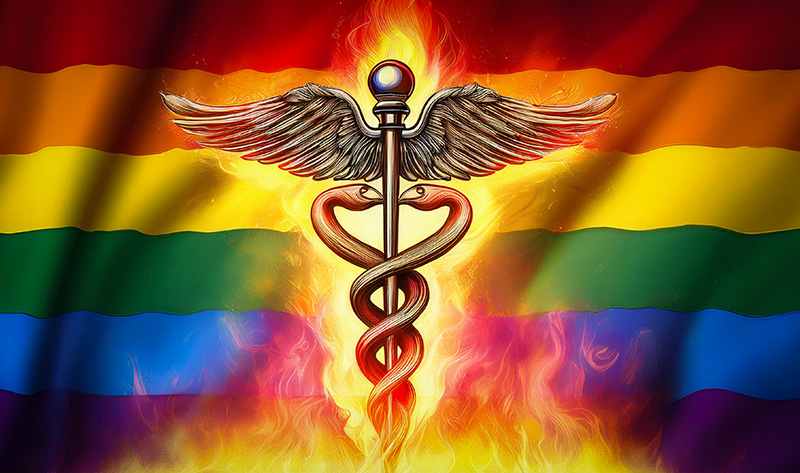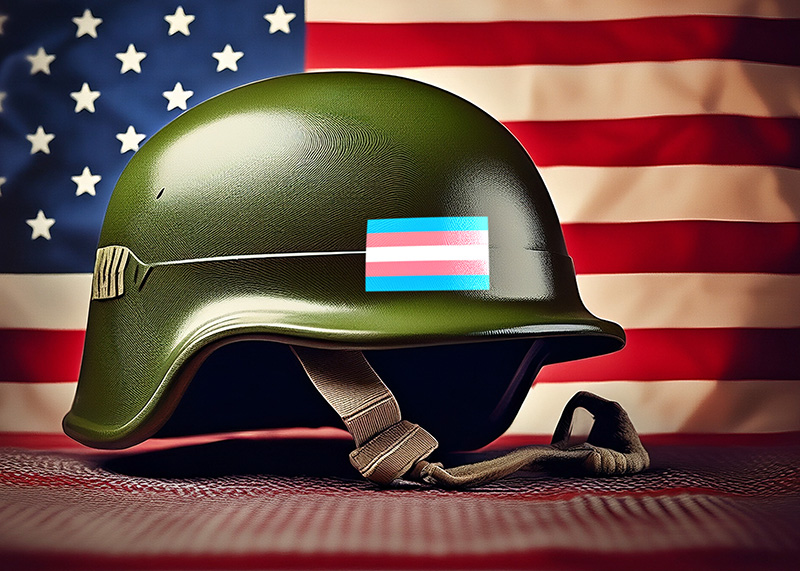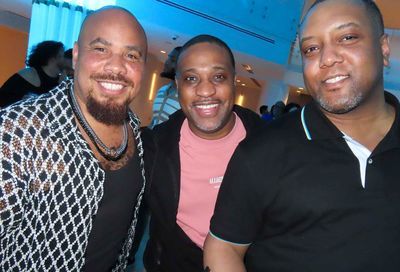Trump’s Supreme Court list is pandering to conservative Republicans
Trump's "wish list" of SCOTUS nominees would be bad news for LGBT Americans (and everyone else)

As he wraps up his inevitable crowning as the Republican Party’s presidential nominee, Donald Trump has one goal: unify the party. Trump, who caused the current fracture in the GOP with his anti-establishment candidacy, needs to unite the party around him before this fall’s election — and he’s doing so by placating elements of the party that have yet to embrace him.
Placation was paramount when Trump released a list of potential nominees to fill Antonin Scalia’s Supreme Court seat.
“I think that this list reflects not just conservatism, but extreme conservatism,” says Kyle Barry, the director of justice programs of the Alliance for Justice Action Campaign, a liberal judicial watchdog group. He notes that Trump released the names only after consulting with two influential conservative organizations, The Heritage Foundation and the Federalist Society.
In short, Trump’s “wish list” of Supreme Court candidates was an early Christmas present to the establishment wing of the Republican Party that has often been so critical of him and his political ideology.
Several of Trump’s picks have roots in Republican Party politics. Colorado Supreme Court Justice Allison Eid previously clerked for U.S. Supreme Court Justice Clarence Thomas, but also served as a speechwriter for Bill Bennett, Ronald Reagan’s Secretary of Education. Raymond Gruender, of the 8th U.S. Circuit Court of Appeals, was the Missouri state political director for the 1996 presidential campaign of former Sen. Bob Dole. Texas Supreme Court Justice Don Willett served as a former advisor to President George W. Bush during his time as governor of Texas, and was the deputy attorney general under former AG (now governor) Greg Abbott. Utah Supreme Court Justice Thomas Lee is the brother of Sen. Mike Lee and the son of Reagan’s former Solicitor General, Rex Lee.
But perhaps most concerning to the nation’s LGBT community should be the inclusion of the names of Justices William Pryor, of the 11th U.S. Circuit Court of Appeals, and Diana Sykes, of the 7th Circuit Court of Appeals, who were both nominated to their current positions by President George W. Bush. Sykes, in particular, has rankled LGBT groups and liberal allies for her decision in the case of Christian Legal Society v. Walker, in which she forced Southern Illinois University to officially recognize an organization that had discriminated against gay students, and had prevented them from joining as voting members or serving in leadership positions.
According to Barry, not only was the outcome of the case concerning, but so was Sykes’ reasoning behind her decision.
“She equated out-of-touch views about LGBTQ equality, and, in particular, she drew what we call a ‘spurious distinction’ between policies that discriminate on sexual conduct, versus discriminating on the basis of orientation,” Barry says. “That’s a distinction that the Supreme Court subsequently rejected.”
The inclusion of Sykes’ name among the list of potential nominees has sparked outrage from some LGBT groups.
“Donald Trump has vowed to appoint Supreme Court Justices who would overturn nationwide marriage equality, and his support for a nominee like Diane Sykes is more evidence that everything we have fought for under President Obama hangs in the balance in November,” says Jay Brown, the communications director for the Human Rights Campaign.
Beyond LGBT rights, Sykes has ruled on other cases that could have broader implications, such as Korte v. Sebelius, where she opined that the Affordable Care Act’s contraception mandate “substantially burdens” the religious practice of closely-held corporations whose owners object to contraception — a view later endorsed by the Supreme Court in the Hobby Lobby case. LGBT advocates have warned that a broad interpretation of Hobby Lobby could result in an employer deciding not to cover other prescriptions or medical treatments to which they object, such as denying coverage for pre-exposure prophylaxis (PrEP) to a gay man.
In terms of Judge Pryor’s record, he did once join a unanimous decision in the case of Glenn v. Brumby, finding that the Georgia General Assembly had discriminated against a transgender woman who was fired from her job after announcing her transition. However, Barry notes that Pryor has a record of voting to uphold Georgia’s voter ID law, and has issued other opinions that are more skeptical of those who claim they have been discriminated against. That has potential implications not only for cases that might come before the Supreme Court regarding racial justice, but women’s rights and LGBT workers’ rights as well.
While he acknowledges that not all 11 nominees share identical positions or have made similar rulings, taken as a whole, confirmation of any of Trump’s nominees would likely move the court in a significantly conservative direction.
“Don Willett of Texas has some opinions suggesting that he would be in favor of revising the Lochner era of constitutional law from the early 20th century, when, essentially, the Supreme Court prevented government from regulating business whatsoever,” Barry says. “That was an era when any kind of social welfare programs, any kind of workplace protections, including child labor laws, minimum wage laws, and even environmental protections were essentially unconstitutional.
“I think views like that are further to the right, even from what we’ve seen from recent Republican appointees.”
Support Metro Weekly’s Journalism
These are challenging times for news organizations. And yet it’s crucial we stay active and provide vital resources and information to both our local readers and the world. So won’t you please take a moment and consider supporting Metro Weekly with a membership? For as little as $5 a month, you can help ensure Metro Weekly magazine and MetroWeekly.com remain free, viable resources as we provide the best, most diverse, culturally-resonant LGBTQ coverage in both the D.C. region and around the world. Memberships come with exclusive perks and discounts, your own personal digital delivery of each week’s magazine (and an archive), access to our Member's Lounge when it launches this fall, and exclusive members-only items like Metro Weekly Membership Mugs and Tote Bags! Check out all our membership levels here and please join us today!























You must be logged in to post a comment.